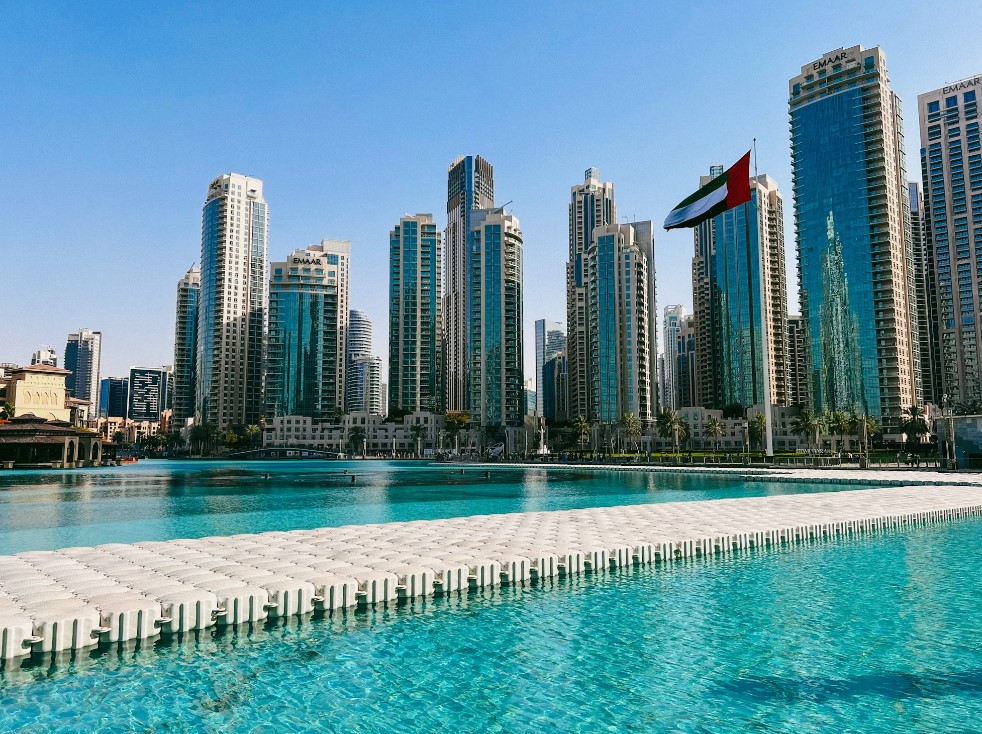DIFC Employment Law: What UAE Business Owners Need to Know

The Dubai International Financial Centre (DIFC) is a unique business hub within the United Arab Emirates (UAE), offering a distinct legal and regulatory environment. Although located in Dubai, the DIFC operates under an independent legal system, complete with its own courts, regulations, and—most importantly—its own employment law.
For entrepreneurs aiming to build the best business in UAE, understanding the specific employment rules that apply within the DIFC is essential. Whether you’re setting up a new venture or managing an existing company in the Centre, compliance with DIFC Employment Law is key.
In this article, we’ll provide a clear, practical overview of DIFC Employment Law, draw comparisons with the broader UAE Labour Law where relevant, and highlight key employer obligations and best practices to stay compliant and competitive.
Key Takeaways
- – Independent Legal Framework: The DIFC operates under its own common-law-based employment legislation, which is entirely separate from UAE onshore labour laws.
- – DEWS Scheme Implementation: Traditional end-of-service gratuity has been largely replaced by the DEWS (DIFC Employee Workplace Savings) Scheme, shifting the financial obligations of employers.
- – Statutory Minimums Must Be Met: Employment contracts cannot offer terms less favourable than those mandated by DIFC Employment Law.
- – Efficient Dispute Resolution: The DIFC Courts—especially the Small Claims Tribunal—provide quick and accessible resolution of employment disputes, with proceedings conducted in English.
- – Key Differences from UAE Onshore Law: While both systems aim to safeguard employee rights, there are notable differences in areas such as contract structures, overtime rules, discrimination protections, and final settlement calculations.
The DIFC Legal Framework
Independent Jurisdiction
The Dubai International Financial Centre (DIFC) operates as an independent jurisdiction with a common-law legal system, separate from UAE federal law. Its judicial body, the DIFC Courts, handles all proceedings in English. As a result, employment disputes and other legal matters within the DIFC are managed independently from the onshore Ministry of Human Resources and Emiratisation (MOHRE). This distinction is especially important for those exploring business ideas in UAE, as legal obligations can vary significantly depending on jurisdiction.

Core Legislation
The two key pillars of employment regulation within the DIFC include:
- – DIFC Employment Law No. 2 of 2019 (as amended) – the primary legal framework governing employment matters in the DIFC.
- – DIFC Employment Regulations – detailed guidelines covering specific employer obligations, such as mandatory DEWS (DIFC Employee Workplace Savings) contributions for end-of-service benefits.
Any UAE business operating within the DIFC must adhere strictly to these rules. Unlike businesses on the mainland, DIFC-based companies cannot rely on UAE onshore labour legislation—although some UAE-wide requirements, like those related to health insurance, still apply.
Regulatory and Enforcement Bodies
- The DIFC Authority (DIFCA): This body regulates compliance within the DIFC, sets employment-related policies, and has the authority to impose penalties for non-compliance.
- The DIFC Courts: These courts hold exclusive jurisdiction over employment disputes within the Centre. For business owners, this means that complaints from DIFC employees are never handled by MOHRE or UAE mainland labour courts.
This independent legal structure is particularly important for entrepreneurs aiming to launch innovative business ideas in UAE or grow a UAE business within the DIFC.
Key DIFC Employment Laws
Employment Contracts
- – Written Contract Requirement: All employees in the DIFC must receive a written employment contract within seven days of starting their role.
- – Mandatory Contract Content: The contract must clearly specify the job title, start date, salary, notice period, leave entitlements, and indicate whether it is a fixed-term or open-ended agreement.
- – Probation Period: Probation is limited to a maximum of six months. During this period, employers can terminate the contract with short notice, as specified in the agreement.
- – Language Requirements: English is the official language for all legal documents in the DIFC, although bilingual contracts can be used if necessary.
Wages and Working Hours in the DIFC
For any UAE business operating in the DIFC—or for entrepreneurs exploring new business ideas in UAE—understanding wage rules and working hour regulations is essential for legal compliance and good employer branding.
- – Monthly Payment: Salaries must be paid at least once per calendar month. Timely payment is a legal obligation and a core part of maintaining trust with employees.
- – Standard Working Hours: The default working schedule is capped at 48 hours per week, averaged over time, unless the employee provides written consent to work longer.
- – Rest Periods: Employees are entitled to a minimum of one rest day per week and 11 consecutive hours of daily rest.
- – Overtime Pay: Unlike onshore UAE law, DIFC legislation doesn’t mandate paid overtime. Overtime terms must be clearly addressed in the employment contract or internal policies.
Leave Entitlements in the DIFC
Providing clear and fair leave benefits is not just a legal requirement—it also supports employee wellbeing and retention, especially in competitive UAE business environments.
- – Annual Leave: Full-time employees are entitled to a minimum of 20 working days of paid annual leave each year.
- – Sick Leave: Employees may take up to 60 working days of sick leave within a 12-month period:
- First 10 days: fully paid
- Next 20 days: half pay
- Remaining 30 days: unpaid
- – Maternity Leave: Female employees with at least 12 months of service are entitled to 65 working days, structured as follows:
- First 33 days: full pay
- Next 32 days: half pay
- – Paternity Leave: New fathers receive five working days of paid leave, to be used within one month of the child’s birth.
- – Public Holidays: Employees are entitled to paid leave on UAE public holidays. If they work during a holiday, they must be compensated with either extra pay or a day off in lieu.
End-of-Service Benefits: The DEWS Scheme
A key departure from traditional UAE labour practices, the DIFC has moved away from the gratuity model with the introduction of the DEWS (DIFC Employee Workplace Savings) Scheme in 2020. This shift impacts every UAE business operating in the DIFC and should be a key consideration when budgeting and planning compensation packages.
- – Monthly Employer Contributions:
- 5.83% of the employee’s basic salary for the first five years of service
- 8.33% thereafter
- – Legacy Gratuity: Any service accrued before 31 January 2020 is still payable under the traditional gratuity system unless the employer has already transferred those funds into the DEWS scheme.
- – Non-Forfeiture Rule: Even if an employee is dismissed for gross misconduct, they are still entitled to all accrued DEWS benefits—there is no forfeiture.

Termination and Redundancy in the DIFC
Understanding how employment can legally end is crucial for any UAE business, especially those based in the DIFC. Whether restructuring a team, managing a disciplinary issue, or simply ending a contract, employers must follow DIFC-specific rules—different from those under mainland UAE law. This is especially relevant for entrepreneurs considering workforce planning, or even seeking a UAE business loan, where staffing costs and liabilities are part of financial evaluations.
Notice Requirements
The minimum notice period an employer must provide depends on the employee’s length of service:
- – Less than 3 months: 7 days’ notice
- – 3 months to 5 years: 30 days’ notice
- – More than 5 years: 90 days’ notice
Alternatively, employers may opt for Pay in Lieu of Notice, terminating employment immediately by paying the equivalent salary for the notice period. Note: these statutory notice periods do not apply during the probation period.
Termination for Cause
The DIFC allows immediate dismissal for serious misconduct, such as theft, fraud, or violence. In such cases:
- – No notice or payment in lieu is required
- – The employer must have clear and documented evidence
- – Accrued end-of-service benefits (including DEWS contributions) cannot be forfeited, even in cases of gross misconduct
Redundancy
Redundancy is recognized as a valid reason to terminate an employee “without cause,” typically in the case of business restructuring or downsizing.
- – Standard notice and payment requirements still apply
- – No extra redundancy compensation is required under DIFC law
- – Employers must ensure the decision is not discriminatory
For growing businesses navigating shifting team structures or applying for a UAE business loan, understanding these obligations is vital for risk management.
Final Settlements
Upon termination of employment, the employer must:
- – Pay the final salary and any unused accrued leave
- – Release DEWS end-of-service contributions within 14 days
- – If delayed without valid justification, a penalty of one day’s wage for each day of delay may apply
Prompt and accurate final settlements help avoid legal issues and support a positive employer brand—especially important when seeking external financing or scaling your UAE business.
Dispute Resolution in the DIFC
One of the advantages of operating within the DIFC is access to a modern, English-language legal system. All employment disputes are handled by the DIFC Courts, with no involvement from MOHRE or UAE mainland labour courts.
Small Claims Tribunal (SCT)
- – Best suited for straightforward claims (e.g., unpaid salary, DEWS contributions)
- – Automatically handles claims up to AED 500,000
- – Claims over this threshold can be heard with mutual consent
- – Fast, informal, and cost-effective—lawyers not required
Court of First Instance (CFI)
- – Handles more complex or high-value disputes (typically over AED 500,000 or USD 136,135)
- – Involves formal procedures, legal representation, and potential appeals
Mediation and Arbitration
- – Mediation is strongly encouraged and often leads to early settlement
- – Arbitration is possible if specified in the employment contract
- – Despite this, many employers and employees choose the SCT due to its speed and simplicity
DIFC vs Onshore UAE Labour Law: Core Distinctions
For entrepreneurs and business owners exploring business ideas in UAE or already running a UAE business, choosing where to operate—within the DIFC or onshore UAE—can have significant legal and operational implications. One of the most important differences lies in employment law.
Below is a clear comparison between DIFC Employment Law and the UAE’s Federal Labour Law (Federal Decree-Law No. 33 of 2021):
| Key Area | DIFC (Dubai International Financial Centre) | Onshore UAE (Mainland) |
|---|---|---|
| Jurisdiction & Language | Operates under an independent common law system, with English-language courts. | Governed by MOHRE, with court proceedings in Arabic. |
| Employment Contracts | Offers flexibility with both unlimited and fixed-term contracts. | All employees must be on fixed-term contracts (up to 3 years, renewable). |
| Overtime | Not mandatory by law; overtime must be defined in the contract or company policy. | Statutory overtime pay is required for hours worked beyond the legal limit. |
| Annual Leave | Minimum of 20 working days per year. | 30 calendar days, which roughly equals 22 working days. |
| End-of-Service Benefits | Uses the DEWS (funded contribution) scheme, with optional legacy gratuity for pre-2020 service. | Follows a traditional gratuity model, based on final basic salary and years of service. |
| Discrimination Protections | Clear anti-discrimination provisions and legal remedies available through DIFC Courts. | General anti-discrimination rules exist but lack a detailed claims process. |
Choosing between the DIFC and the UAE mainland will depend on the nature of your business, legal preferences, and whether your UAE business prioritizes a common-law framework or prefers alignment with federal systems. For many international investors and startups evaluating business ideas in UAE, the DIFC offers added clarity, flexibility, and an internationally familiar legal environment.



